Japan is a country that is overflowing in cultural heritage. Internationally, it has managed to export its delicious and unique food culture, its pre-industrialized samurai history, as well as the products of its modern, industrialized culture too.
Everything from our TV sets to the emojis we all love to use on our phones were refined or invented in Japan. It is clear that Japan has made a huge impact on the world, and will continue to do so for many years into the future.
Few mainstream moviegoers realize that Japanese film has been as rich and influential as its food has over the centuries. Directors like Akira Kurosawa were so original that Hollywood owes a big debt of gratitude to Japan for films such as The Magnificent Seven and The Ring.
To pay homage to this amazing country and the great films that it has produced, here is our list of the top 10 Japanese films of all-time.
1. Seven Samurai
Akira Kurosawa, 1954
The film that many regards as Kurosawa’s masterpiece, Seven Samurai is also widely accepted as being one of the best Japanese movies ever.
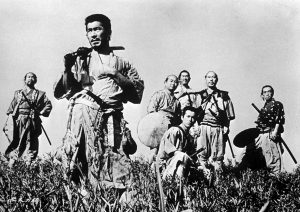
The film tells the tale of a group of farmers who enlist the help of seven samurais to help protect their village against a group of bandits. At over 200 minutes in length, it starred Kurosawa favorite Toshiro Mifune as a ferocious Samurai who becomes an unlikely hero.
2. Rashomon
Akira Kurosawa, 1950
The argument over which of Kurosawa’s two greatest films is the best will surely never end. Both are incredible films that cunningly combine different features from numerous genres. Rashomon is arguably a deeper look into the human psyche and how it can be manipulated.
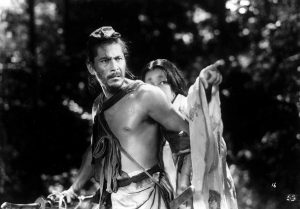
Seven years before Twelve Angry Men would be released Rashomon would examine how a good-natured individual can be corrupted and lead astray by another.
It combines elements of the murder movie and drama genres. The film cunningly deceives audiences by showing different versions of the same crime to confuse and compound them.
3. Tokyo Story
Yasujirô Ozu, 1953
Tokyo Story is another milestone in Japanese cinema. The film takes an in-depth look at life in Japan after the devastation of World War Two. The film was praised for its realism and raw presentation of real-life in Tokyo during this era.
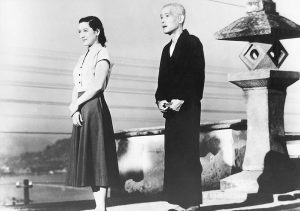
For this reason, it has been likened to many films of The French New Wave. Indeed, the film was praised by directors such as Jean Luc Goddard and François Truffaut.
The film follows a family that is struggling to come to terms with the family members that were lost during the war. It examines how members of the family deal with the burden of expectation that is placed upon them by society.
4. Harakiri
Masaki Kobayashi, 1962
Harakiri is a ritual suicide by disembowelment that samurai and soldiers undertake as a matter of honor. Director Masaki Kobayashi set out to make a film critical of this once prevalent tradition.

Set in the early 1600’s, the film tells the tale of Hanshirō Tsugumo, a samurai warrior who feels dishonor because of his lack of a lord. He finds himself battling with his code that demands that he commit suicide in hope of regaining his honor from other feudal lords.
Were it not for the fact that he was overshadowed by the great Kurosawa, Kobayashi would be regarded as Japan’s best film director.
5. Spirited Away
Hayao Miyazaki, 2001
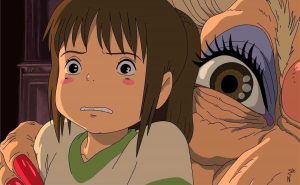
Spirited Away was a film that came out of nowhere to become a global sensation. While at home, it would become one of Japan’s biggest box office successes, internationally, it would win the Academy Award for Best Animation along with a slew of other top prizes.
6. Ugetsu
Kenji Mizoguchi, 1953
Widely regarded as director Kenji Mizoguchi’s all-time best film, Ugestzu is a clever movie that hints at a double meaning to its plot. Long before the mediocre Sixth Sense and the other appalling M. Night Shyamalan movies that followed it, Ugetsu uses cleaver film devices to hint that the plot might, in fact, be a ghost story.
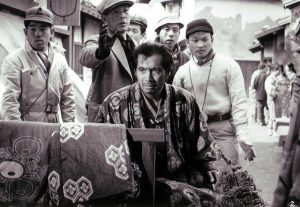
The story tells the tale of two lovers whose ambition, love and wrongdoings set them on a difficult course in late sixteenth century Japan.
7. Woman in the Dunes
Hiroshi Teshigahara, 1964
Nominated for two Academy Awards, Woman in the Dunes surprisingly received mixed critical reviews after it was released. Adapted by author Kōbō Abe from his own 1962 novel, the film is the best that the Japanese New Wave movement of the 1960’s has to offer.
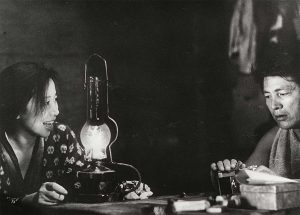
Its complex plot and subject matter shocked many audience members in Japan for its reference to sex. The film is almost a fairy-tale in its plot, however, there is no happy ending to this film.
8. Ikiru
Akira Kurosawa, 1952
Probably the most heartfelt of all Kurosawa’s films, Ikiru tells the tale of an ordinary civil servant, who after discovering he has cancer, decides to focus what remains of his life in undertaking one last positive act.
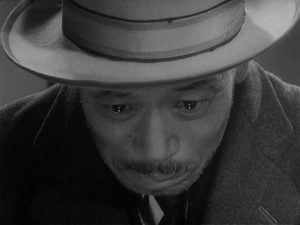
Ikiru is largely overlooked by Kurosawa fans because of its lack of conflict orientated plot and rather melancholic feel. It is a true classic of Japanese cinema that must not be missed.
9. Ringu
Hideo Nakata, 1998
While Hollywood has been the real profiteer of the Japanese horror renaissance in that took place in the late 1990’s, the Japanese can rightly claim to be the true masters of the modern horror genre.

Ringu is one of the scariest horror films of modern times. After a videotape emerges that kills whoever is unfortunate enough to watch it, one woman sets out to unravel the mystery.
10. Throne of Blood
Akira Kurosawa, 1957
While we should apologize for the sheer number of Kurosawa films to make this list, the simple fact is that each of them fully justifies their place.
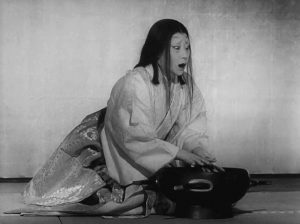
Borrowing from the plot of William Shakespeare’s Macbeth, Throne of Blood is Kurosawa’s most brilliant psychological thriller. It stars Kurosawa favorite Toshiro Mifune as a general who kills his warlord under the instructions of his wife. In the events that follow he is driven to the brink of madness by the deception that follows.
Subscribe Us –




Stay connected